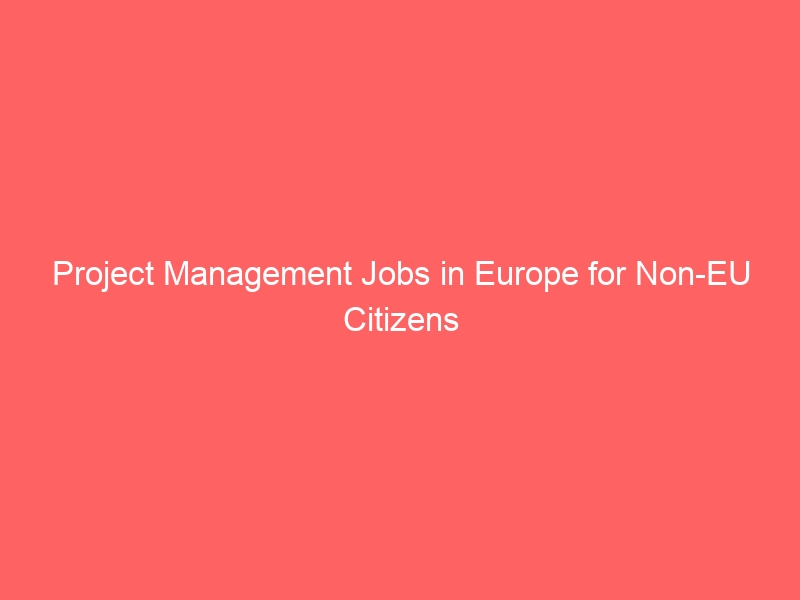Project management is a critical skill across various industries, and Europe offers a plethora of opportunities for experienced professionals. For non-EU citizens, securing a project management position might require more preparation, but the rewards are well worth the effort. Here’s what you need to know to pursue a project management career in Europe.
Why Work as a Project Manager in Europe?
Europe is home to numerous multinational companies and industries that rely on skilled project managers to keep operations running smoothly. From tech giants in Germany to construction projects in the Netherlands, opportunities abound. Working in Europe provides not only competitive salaries but also exposure to diverse work cultures and the chance to build an international network.
Top Countries for Project Management Roles
1. Germany
Germany’s economy is one of the strongest in Europe, making it a hotspot for project management jobs, especially in the engineering, automotive, and tech sectors. The country values structured project management approaches such as PMP and PRINCE2 certifications. Non-EU citizens can apply for a Blue Card, which simplifies the process for highly skilled workers to work and live in the country.
2. Netherlands
The Netherlands is known for its focus on innovation and sustainable business practices. Project managers are in demand across sectors like construction, logistics, and technology. The Dutch work culture is collaborative and encourages a good work-life balance. Non-EU professionals often apply for a highly skilled migrant visa to work here.
3. Ireland
Ireland has become a major hub for tech and finance, thanks to multinational companies like Google, Facebook, and major banking firms. Project managers with experience in IT, finance, or business operations will find ample opportunities. The Critical Skills Employment Permit is one pathway for non-EU citizens to secure work in Ireland.
How to Secure a Project Management Job in Europe
Obtain the Right Certifications
Having internationally recognized project management certifications such as PMP, PRINCE2, or Agile can significantly enhance your job prospects. These certifications demonstrate your expertise and align with European standards for project management practices.
Research Visa and Work Permit Requirements
Each country has its own regulations for hiring non-EU professionals. Research the specific work permit or visa needed for your target country and understand the eligibility criteria. Countries like Germany and the Netherlands offer streamlined processes for highly skilled workers, making them attractive options for project managers.
Leverage Professional Networks
Networking is crucial when seeking project management jobs abroad. Join professional associations like the Project Management Institute (PMI) and attend international conferences. LinkedIn can also be a valuable tool for connecting with recruiters and professionals in your field.
Tips for Job Applications
- Customize Your CV: Tailor your CV to highlight project management experiences that align with the specific industry and country you’re targeting.
- Demonstrate Multilingual Skills: If you know a European language, showcase it in your application. While English is widely used, knowing the local language can be a significant advantage.
- Prepare for Cultural Interviews: European companies often emphasize soft skills and cultural fit. Be prepared to discuss not only your technical skills but also how you work in a team and adapt to different working environments.
What to Expect in the First Months
Starting a project management role in Europe comes with a learning curve. Understanding local business practices, adapting to new team dynamics, and navigating language differences are common challenges. However, most companies offer orientation programs and mentoring to help new hires adjust.
Final Thoughts
Securing a project management job in Europe as a non-EU citizen may require additional steps such as obtaining the right certifications and work permits, but it’s a journey worth undertaking. The experience of working in diverse, international environments can significantly enhance your career prospects and provide personal growth. With the right preparation, you can take advantage of the robust opportunities Europe has to offer.
